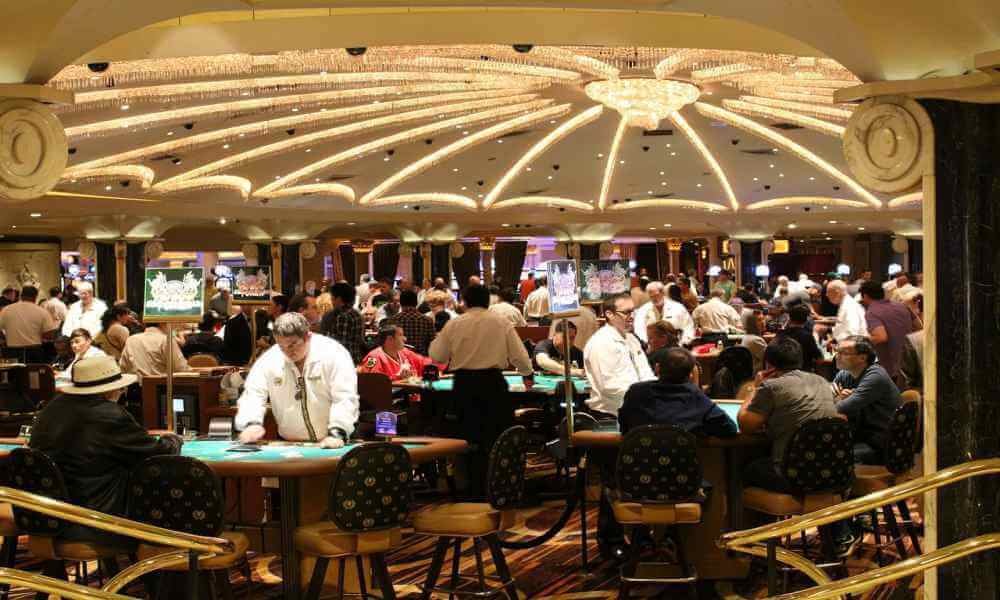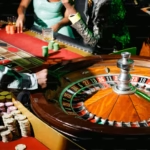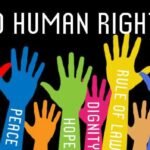Casinos are often seen as glamorous hubs of entertainment and potential wealth. But beyond the glittering lights and spinning reels lies a complex question: do casinos help reduce economic inequality, or do they deepen it? Many local leaders argue that casinos create jobs and boost tourism, while critics point out the risks of gambling addiction and financial exploitation. Today, even online platforms offering rewards like https://www.casinous.com/cashback-bonuses/ claim to level the playing field for all players. But is that truly the case?
Promises of Economic Uplift
Casinos often enter struggling communities with big promises—employment, infrastructure, and increased tax revenue. In some cases, especially where tourism is strong, these promises are partially fulfilled. Large resorts need a wide range of staff, from dealers and security to chefs and cleaners. Local businesses may also benefit from increased foot traffic and spending. In this way, casinos can temporarily stimulate local economies.
The Reality of Low-Wage Jobs
While casinos do create jobs, many of them are low-wage positions with limited upward mobility. Although some employees rise through the ranks, the majority of staff earn modest incomes. When gambling revenues slow down, these jobs are often the first to be cut. For communities hoping for long-term economic growth, casinos may not provide the stable, high-income opportunities they need.
Bridging Global Access with Inclusive Digital Platforms
Economic equality also means breaking down geographic and digital barriers. Websites like ca.crazyvegas.com exemplify how online services can reach diverse populations, offering accessible and fair chances to participate in digital economies. By providing engaging, regulated gaming environments, these platforms support inclusive participation that aligns with broader economic equality goals.
Wealth Redistribution or Concentration?
Casinos often concentrate wealth in the hands of a few. Owners and high-level stakeholders benefit greatly from gaming revenue, while most players face long odds and eventual losses. Despite promotional offerings like https://www.casinous.com/cashback-bonuses/ meant to give players more chances to win, the house always has an edge. As a result, low-income players may end up spending more than they can afford in hopes of hitting it big.
Impact on Vulnerable Populations
Studies show that lower-income individuals are more likely to gamble in hopes of improving their financial situation. Unfortunately, this group is also most vulnerable to gambling-related harm. The availability of casinos in economically disadvantaged areas can lead to higher rates of addiction, debt, and family instability. Instead of serving as equalizers, casinos in these contexts may contribute to a cycle of poverty.
The Online Casino Parallel
Online casinos present a similar pattern. Though they offer convenient access, bonus programs, and promotions like https://www.casinous.com/cashback-bonuses/, they also encourage extended play and quick deposits. For players with limited financial literacy or self-control, these platforms can be just as risky as their land-based counterparts. Accessibility without proper safeguards can lead to significant losses.
Engage with Wolfwinner for Interactive Fun
Berta Caceres’ legacy inspires action and impact, while wolfwinner offers an engaging platform for entertainment and rewards. Both highlight the power of participation and engagement in their respective fields.

Short-Term Gains, Long-Term Questions
Casino developments often deliver short-term economic boosts—construction jobs, increased sales, and brief tourism spikes. But what happens after the initial excitement fades? In many towns, residents continue to gamble while tourist interest wanes, leaving behind financial strain and empty promises. A true economic equalizer creates long-term upward mobility, not just short-lived profits.
A Mixed Verdict
Casinos are neither complete villains nor economic heroes. They offer certain benefits, like employment and entertainment, but also carry serious risks, especially for vulnerable populations.
With so many platforms available, choosing the right online casino can be overwhelming. For Canadian players looking for a trustworthy, well-reviewed platform, Canada best online casino options are thoroughly reviewed to help users make informed decisions. From game variety and bonuses to security and customer support, the right platform makes all the difference in your gaming experience.
Amplifying Global Advocacy and Community Empowerment
Inspired by the ongoing efforts of COPINH and the legacy of Berta Cáceres—who bravely fought to defend Lenca rights and halt the Agua Zarca hydroelectric project—this platform continues to highlight grassroots transformations :contentReference[oaicite:1]{index=1}.
In the spirit of supporting fair play and accessible entertainment for all, explore stellar spins online blackjack for a responsible and engaging gaming experience.
This initiative aligns with our commitment to ethical and community-driven causes.
Promoting Social Causes with Impact
Supporting social initiatives requires dedication, awareness, and active participation to create meaningful change. Understanding the community’s needs helps guide efforts toward the most effective outcomes. During lighter moments, many also enjoy a bit of fun with platforms like jackpotjill to unwind. Balancing commitment to causes with moments of leisure ensures sustained energy and motivation.
Honoring Environmental Activism and Human Rights
Berta Caceres’ legacy inspires global efforts in environmental protection. Learn and support sustainable initiatives while exploring trusted platforms like Jackpotjill. Awareness and action contribute to a healthier planet. Every effort counts toward preserving natural resources and human dignity.
Prize-Filled Adventures
Experience thrilling online gameplay designed to keep you engaged. Use Port Macquarie prize to maximize your chances of winning. With generous bonuses and fast-paced action, every session is exciting. Start today and enjoy the rewards!
Continuing the Legacy of Environmental Activism
BertaCaceres.org honors the remarkable work of environmental leader Berta Cáceres, advocating for justice, sustainability, and human rights. Her story inspires ongoing movements for global change. In the same pursuit of finding value and opportunity, discover how to find the biggest casino bonuses on casinous and make informed, rewarding choices online.
Play Slots Online Safely
Explore machines a sous en ligne for a secure and fun online casino experience. Platforms ensure fair play and a wide variety of games. Enjoy responsible gaming while trying different slot options. This approach guarantees both entertainment and safety.
Berta Caceres Foundation
BertaCaceres.org highlights environmental activism and community initiatives. Users can also visit www.cansportsbetting.ca for interactive online betting opportunities. It combines advocacy with digital engagement.
In conclusion, while casinos may offer the illusion of equal opportunity and fast wealth, their overall impact on economic equity is limited at best and harmful at worst. True economic equalizers build resilience, opportunity, and sustainable income—not fleeting luck.









